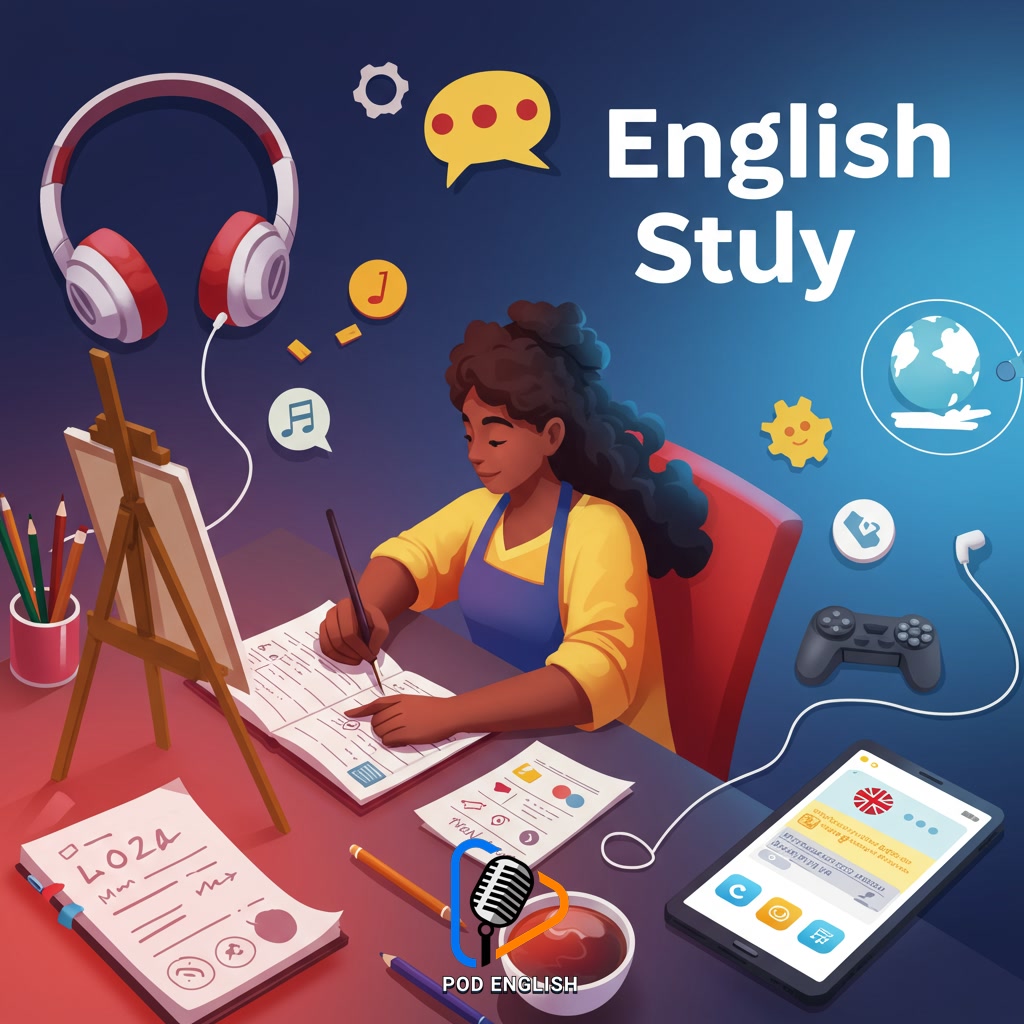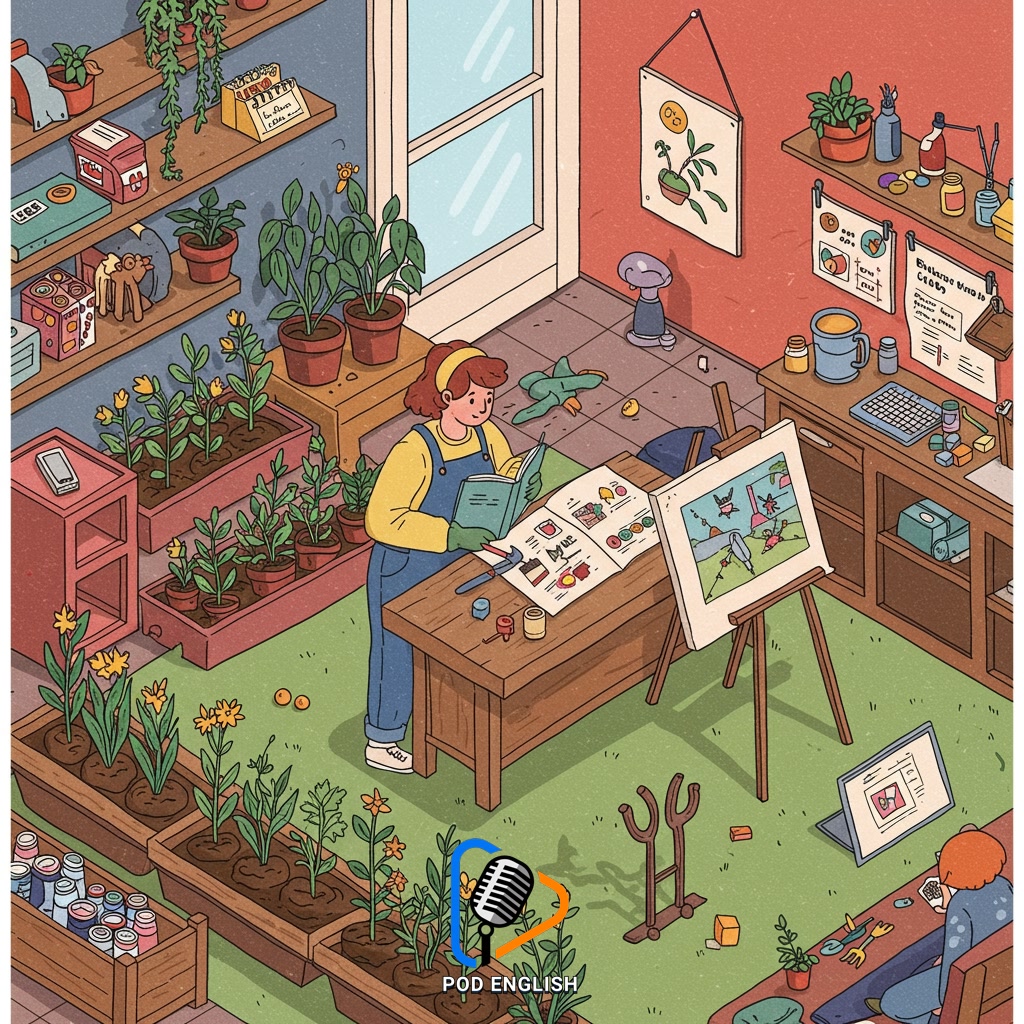Learn English
Unlock Better English Practice: Leverage Your Interests and Hobbies to Study Effectively

Discover an effective approach to enhance your English proficiency by integrating your personal interests and hobbies into your practice routine. This method suggests leveraging your passions to make learning more engaging and relevant. By connecting English practice with activities you enjoy, you can boost motivation and improve retention. Explore how aligning your study efforts with your favorite pastimes can lead to significant progress in mastering the language.
Table of Contents
- Section 1: Why Using Interests and Hobbies Boosts Your English Learning
- Section 2: Identifying Your Passions: What Interests Can You Leverage?
- Section 3: Putting It Into Practice: Integrating English with Specific Hobbies
- Section 4: Making It Effective: Strategies for Active Learning
- Section 5: Staying Motivated and Tracking Your Progress
- Section 6: Embrace the Journey: Enjoying Your English Practice
Section 1: Why Using Interests and Hobbies Boosts Your English Learning
Using your interests and hobbies transforms English practice from a chore into an enjoyable activity. When you engage with English content related to something you genuinely care about, like music, gaming, cooking, or sports, your brain is more likely to pay attention and retain information. This is because you have an intrinsic motivation – you *want* to understand the lyrics, follow the game’s dialogue, read the recipe, or comprehend the sports commentary. This real-world connection makes the language relevant and practical, boosting your desire to learn and leading to more consistent and effective study sessions compared to traditional methods that might feel disconnected from your life.

Why Using Interests and Hobbies Boosts Your English Learning
Section 2: Identifying Your Passions: What Interests Can You Leverage?
Building on the idea of using interests, the first crucial step is to clearly identify what your passions truly are. Take some time to think about what you genuinely enjoy doing in your free time. What topics do you love reading about, watching videos on, or discussing with friends? Are you drawn to music, movies, gaming, cooking, sports, history, science, or perhaps something more specific like gardening or astrophysics? Don’t limit yourself; any interest, no matter how niche, can become a rich source for English learning. The key is to pinpoint activities or subjects that genuinely excite you, as this intrinsic motivation is what will make consistent English practice feel less like studying and and more like exploring something you love. List them out and consider which ones offer accessible English content like videos, articles, podcasts, or online communities.

Identifying Your Passions: What Interests Can You Leverage?
Section 3: Putting It Into Practice: Integrating English with Specific Hobbies
Once you’ve identified your true interests and hobbies, the next vital step is to actively integrate English practice into these activities. Instead of just reading about your hobby in your native language, seek out English resources. If you love cooking, explore English-language recipe websites, watch instructional cooking videos on platforms like YouTube with English narration, or even join an online cooking forum where English is spoken. For gaming enthusiasts, try playing games with English voice acting and subtitles, read English game reviews or lore, or watch English-speaking streamers. If art is your passion, read articles about artists in English, watch English documentaries about art history, or follow English-language tutorials for techniques. The key is to consistently expose yourself to English within contexts you genuinely enjoy, making the learning process feel less like studying and more like a natural extension of your passion.

Putting It Into Practice: Integrating English with Specific Hobbies
Section 4: Making It Effective: Strategies for Active Learning
Following the identification of your interests, the key to making this approach effective is active engagement. Don’t just passively consume content; actively *use* English within your chosen activity. For instance, if you love cooking, try reading recipes in English, watching English cooking shows, or even describing your cooking process aloud in English. If your hobby is gaming, join English-speaking forums or voice chats related to the game. For art, read tutorials or discuss techniques in English online. The goal is to make English a functional tool within an enjoyable context. Set small, achievable goals, like learning specific vocabulary related to your hobby each week or summarizing an English article about it. This active application solidifies learning and makes the process feel less like study and more like integrated practice.

Making It Effective: Strategies for Active Learning
Section 5: Staying Motivated and Tracking Your Progress
Following the identification of your interests, the key to making this approach effective is active engagement. Don’t just passively consume content; actively *use* English within your chosen activity. To sustain this engagement and ensure continuous improvement, staying motivated and tracking your progress is vital. Motivation comes naturally when you connect learning to something you genuinely enjoy. Celebrate small victories, like understanding a challenging phrase in a song or successfully communicating with others in a gaming community. Tracking doesn’t need to be rigid; simple methods work best. Keep a brief log of new vocabulary related to your hobby, note down how much more you understand of a podcast over time, or reflect on how much easier it is to follow a tutorial video. This personal connection makes progress tracking less of a chore and more a rewarding confirmation that your English skills are enhancing your passion.
Staying Motivated and Tracking Your Progress
Section 6: Embrace the Journey: Enjoying Your English Practice
Building on actively using English, the crucial element is allowing yourself to *enjoy* the process. When you connect English practice with your passions – whether it’s discussing a favorite movie, reading about a historical event, or following instructions for a craft – it transforms from a dry academic task into a rewarding part of your leisure time. Embrace the small victories, the moments you understand something new related to your interest, or successfully communicate about it. This intrinsic enjoyment is a powerful motivator, making consistent practice feel less like work and more like a natural extension of your interests. It’s about finding pleasure in the journey of improving your English within the context of things you already love.

Embrace the Journey: Enjoying Your English Practice













